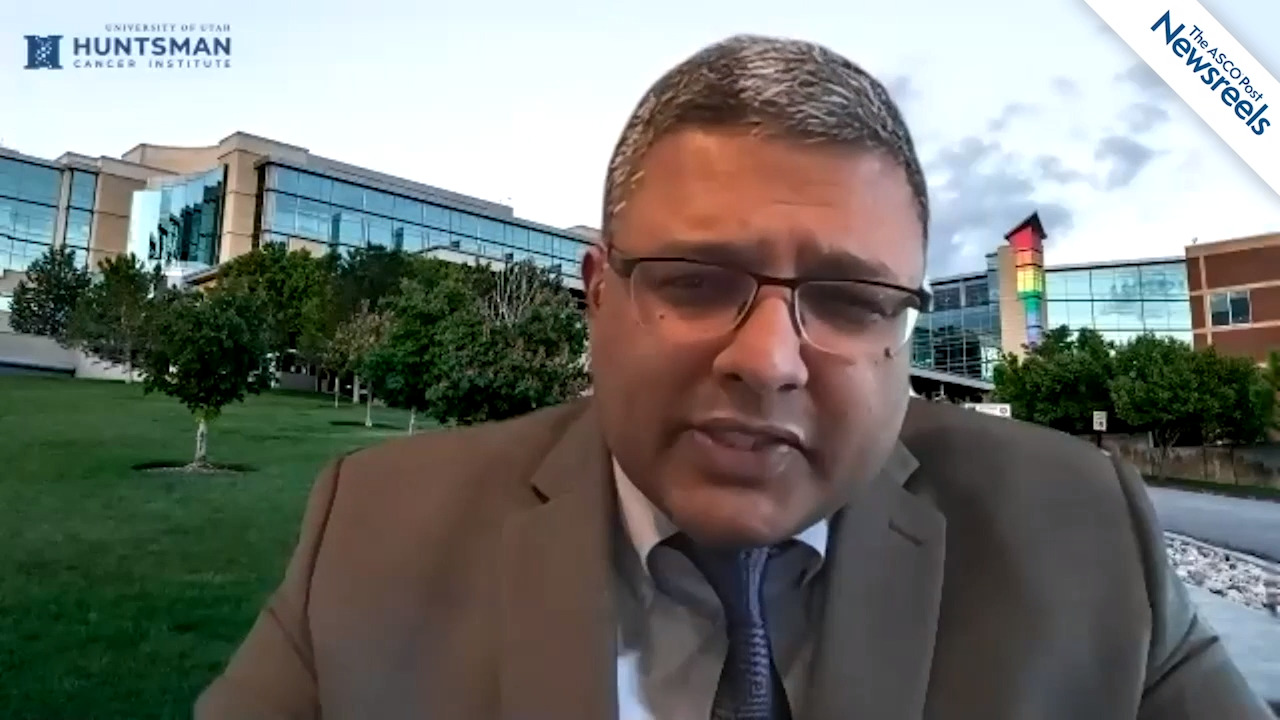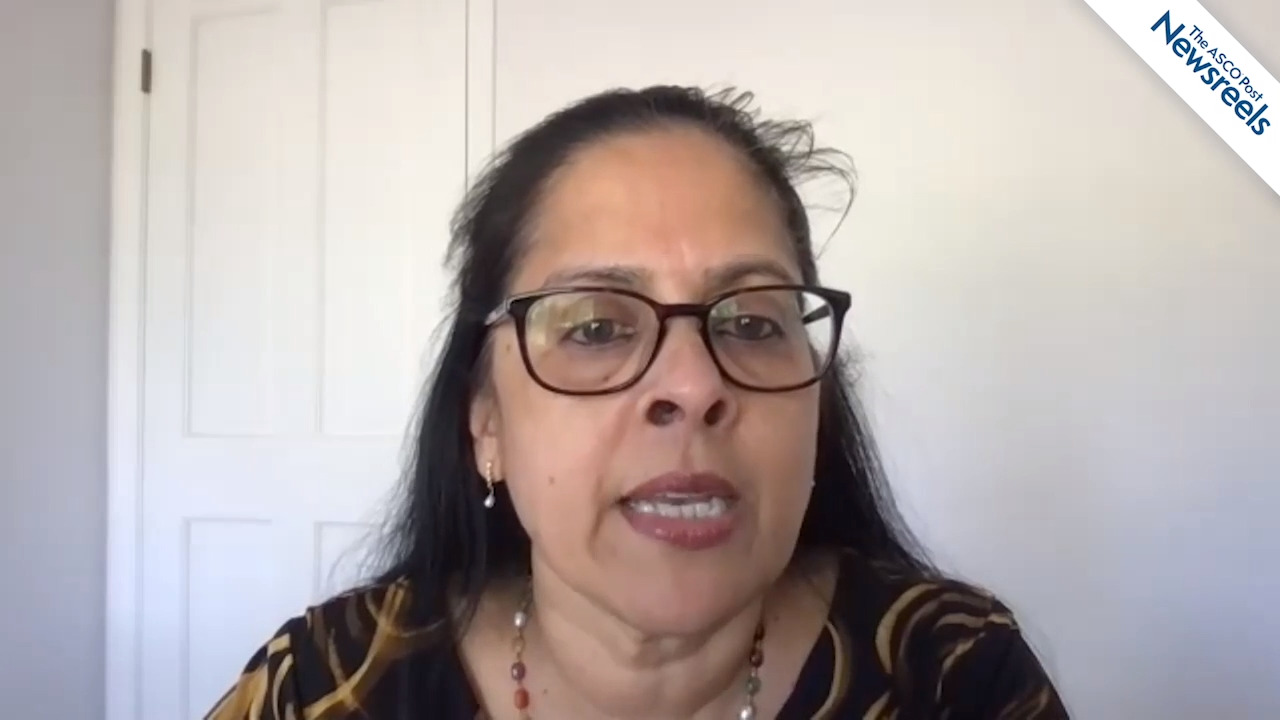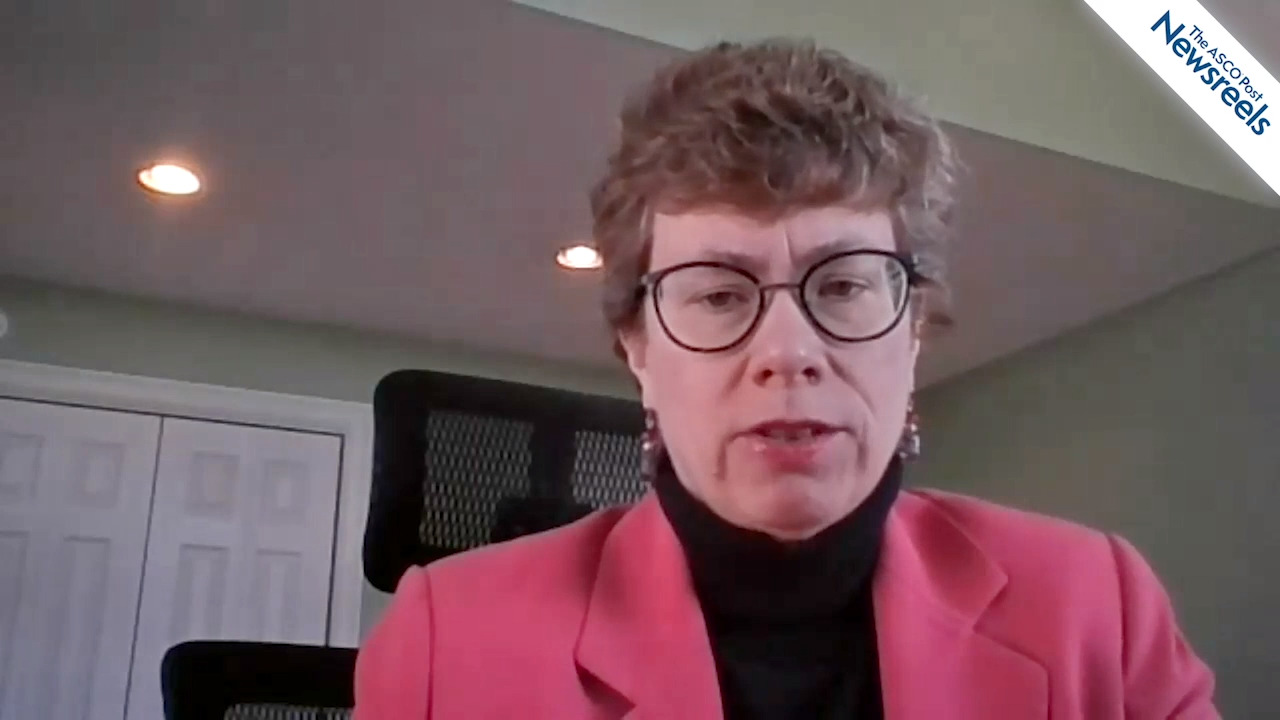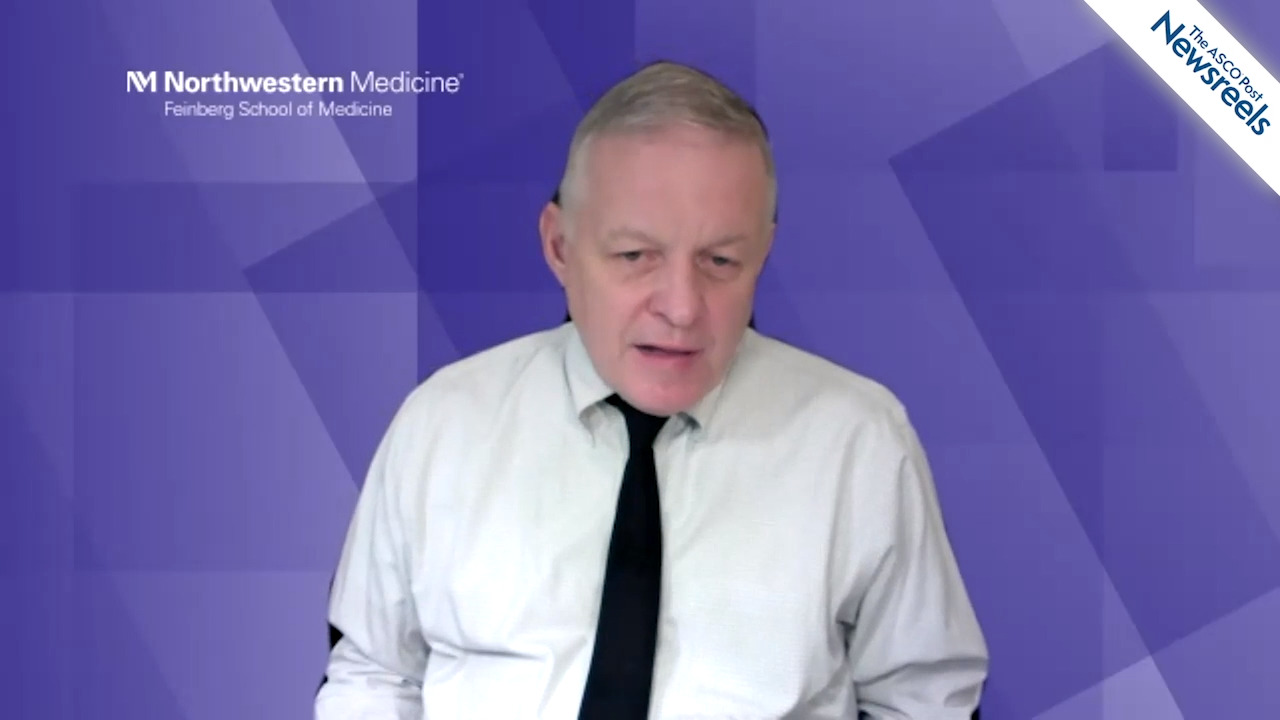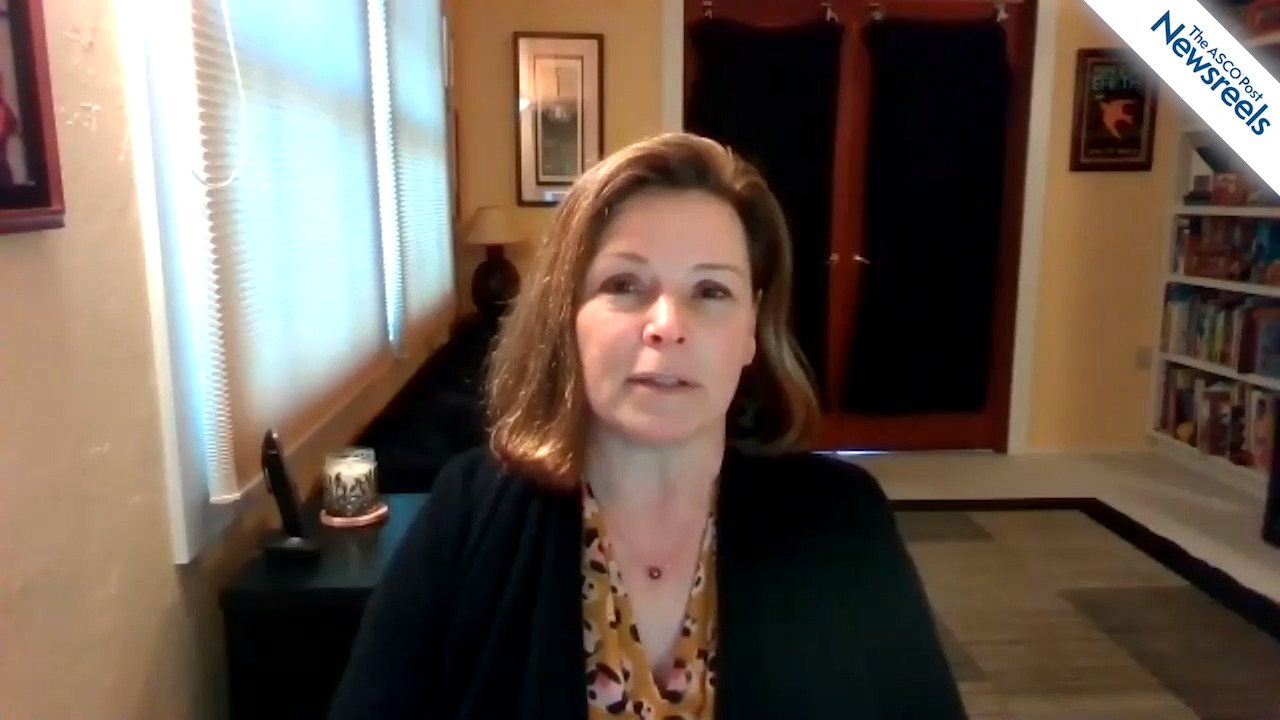April K. Salama, MD, on Managing Melanoma Brain Metastases
NCCN 2021 Virtual Annual Conference
April K. Salama, MD, of Duke Cancer Institute, discusses the shift in recent years, as more effective therapies have become available, toward integrating systemic upfront treatment of patients with brain metastases from cutaneous melanoma; pivotal studies that have provided key data; and the need for a multidisciplinary approach incorporating medical, surgical, and radiation oncology.
The ASCO Post Staff
Thomas K. Varghese, Jr, MD, of Huntsman Cancer Institute at the University of Utah, summarizes a panel discussion on how the COVID-19 pandemic has interrupted cancer screenings, when telemedicine works and when it doesn’t, opening alternative care sites in the community, and the emotional and mental toll the coronavirus has taken on health-care providers.
The ASCO Post Staff
Sandy Srinivas, MD, of Stanford Cancer Institute, discusses the increasing number of ways to deliver life-prolonging therapy to patients with advanced prostate cancer, including more accurate imaging techniques; PET tracers to help better detect, diagnose, and treat disease; PARP inhibitors for BRCA and other mutations; and new sequencing of drugs.
The ASCO Post Staff
Jennifer R. Brown, MD, PhD, of Dana-Farber Cancer Institute, discusses treatment choices for patients with relapsed or refractory CLL/SLL, when to stop therapy due to adverse events, BTK inhibitors and their second-generation counterparts, the need for ways to manage disease progression on novel drugs, and minimal residual disease as a predictor of response.
The ASCO Post Staff
William J. Gradishar, MD, of Robert H. Lurie Comprehensive Cancer Center of Northwestern University, discusses the latest recommendations from the National Comprehensive Cancer Network for treating patients with triple-negative breast cancer; data on early-stage and advanced disease; and the role of checkpoint inhibitors, antibody-drug conjugates, and PARP inhibitors.
The ASCO Post Staff
Susan M. Swetter, MD, of Stanford Cancer Institute, discusses molecular prognostic tests for cutaneous melanoma, which may improve staging accuracy, reduce unnecessary sentinel lymph node biopsies, and inform decisions on surveillance imaging and/or adjuvant therapy.
